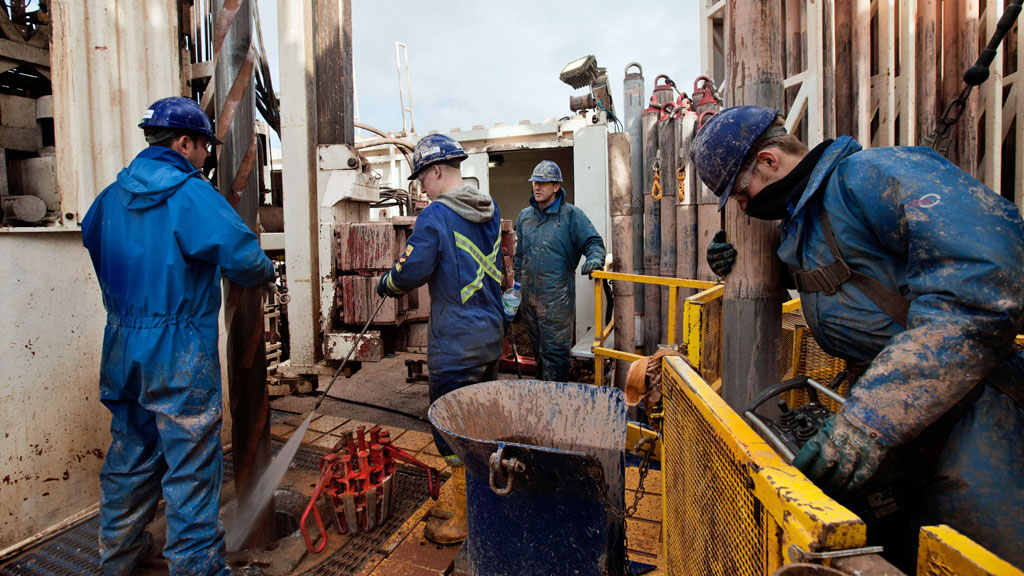Fracking – the key questions
As the government lifts the ban on fracking in the UK, Channel 4 News looks at the history of shale gas exploration in Britain.

Fracking – fracturing rock with high-pressure jets of water in the hope of retrieving trapped gas – was banned after exploration in the Blackpool area led to earth tremors, sometimes described as mini-earthquakes, in April and May 2011.
Where does fracking go on at the moment?
The technology is big in America, where it is credited with driving down prices and ensuring that the US can supply more of its own natural gas, rather than import it from abroad.
What are the concerns?
Earth tremors are one concern, although no damage was caused in Lancashire.
A government-commissioned report this year found that drilling had caused the tremors and that this was likely to happen again if fracking resumed.
But it said that while “such an event would be strongly felt by people within a few kilometres from the epicentre and could cause some alarm”, no structural damage was likely.
There are also worries about possible water pollution. An HBO documentary, Gasland, showed images of householders setting fire to their tap water, allegedly the result of methane contaminating domestic supplies.
What has the chancellor announced?
In his autumn statement last week, George Osborne announced the creation of a new government office for shale gas, which is designed to simplify regulation.
The Office for Unconventional Gas and Oil will serve as the single point of contact for investors, who will be offered tax breaks.
Mr Osborne said in his statement: “We don’t want British families and businesses to be left behind as gas prices tumble on the other side of the Atlantic.”
With families battling with the effects of tax increases, public spending cuts, stagnant pay and rising energy bills, the chancellor wants to offer some hope at the end of the horizon.
Who agrees?
Cuadrilla, the company fracking for gas in Lancashire, is keen to restart business in 2013 and welcomed Mr Osborne’s announcement.
It says its activities “fully comply with one of the world’s tightest regulatory systems for oil and gas”, and has agreed that future drilling should be monitored by seismic sensors, with tremors leading to a temporary shutdown.
Who disagrees?
Environmentalists concerned about climate change say Britain would do better concentrating on renewable energy rather than fossil fuels.
Greenpeace says the shale gas boom in the US cannot be replicated in this country.
Central Lancashire Friends of the Earth say people living in the Blackpool area are worried about water and air pollution, as well as damage to the countryside, house prices and tourism.
How much shale gas is available in the UK?
A review of the country’s shale gas reserves will be published by the British Geological Survey (BGS) in early 2013.
Cuardilla has estimated that there are 200 trillion cubic feet (tcf) of gas near Blackpool, but reports suggest the BGS will conclude there are in fact 300 tcf.
What has to be borne in mind is that while reserves may be extensive, it is unclear how much can be produced.
It is also unlikely that whatever is produced will have an impact on Britain’s energy needs for several years to come.
-
Latest news
-
Yungblud launches his own affordable music festival5m

-
Why these Americans want to quit their state9m

-
Company behind infected water outbreak are ‘incompetent’ says local MP5m

-
Israeli forces push deeper into Northern and Southern Gaza4m

-
India’s ‘YouTube election’: Influencers enlisted to mobilise youth vote6m

-




